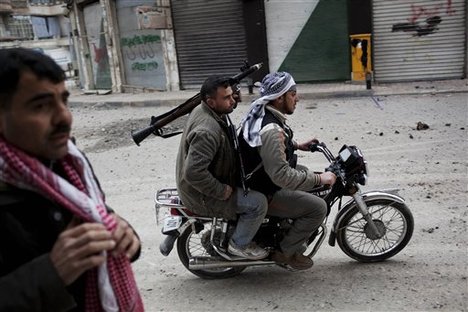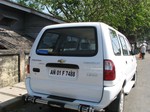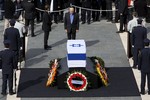- published: 17 Mar 2013
- views: 371
DARK MATTER PARADIGM | http://www.darkmatterparadigm.blogspot.com March 17, 2013 - SOUTH AFRICA - When Nelson Mandela was released from prison in February 1990, where he'd spent more than 27 years for fighting racial segregation, the South African leader knew exactly who he wanted to become his official photographer: Peter Magubane. "I became his photographer the next day he got home," remembers award-winning Magubane. "He told the ANC [African National Congress] guys, 'this is the guy I want' -- I was the happiest man." Mandela's choice wasn't a surprise; Magubane, who had already photographed several milestones in Mandela's life, including his early days as a political activist in the 1950s, was renowned for his impressive body of work chronicling the cruelties of apartheid. And, like Mandela, Magubane had also faced the wrath of South Africa's oppressive regime. In 1969, Magubane was detained and kept in solitary confinement for 586 consecutive days. Later on, he was banned from working as a photographer for five years and sent to prison again for breaking the banning orders. "I told myself, there is no one that is going to tell me what to do," says Magubane. "I had prepared to die for what I'm doing because I'm not stealing anything," he adds. "I am prepared to face the guns. I'm prepared to face police, any gangster, whether black or white. I'm not going to be told not to do my work." Magubane's long and acclaimed career started some six decades ago at the legendary Drum magazine, a Johannesburg publication that became a platform for talented writers and photographers, depicting a vibrant black urban culture in white-dominated South Africa. Magubane started as a driver but was eventually promoted to the dark room and then the field. With his camera on hand, he went on to snap some of the most defining images of the anti-apartheid struggle -- from the treason trials in the 1950s to the youth uprising in Soweto in 1976. Undeterred by threats, bans and prison, Magubane's defiant spirit shaped his work in the field. His refusal to put down his camera meant that he'd often have to get creative to bamboozle authorities. "I'd buy half a loaf of bread, cut the inside of the bread, and put the camera in there," Magubane says. "I'd go around taking pictures." And if a policeman appeared ... "I'm eating bread." The committed photographer, who also went on to work for the Rand Daily Mail and Time Magazine, has won several awards for his iconic images that resonate to this day. He has held exhibitions across the world, published 17 books and received seven honorary degrees. Today, at 81, he is still working hard -- although he has found a new focus for his lens. "I'm sick and tired of taking pictures of dead people," says Magubane. His main interest now is shooting images displaying the culture, the people and the beauty of his country, including stunning photos of the setting sun. "If I come across hell, hell will break loose, I will take pictures," he explains. "I will stop and say 'no I'm not doing the sun.' But what I don't want to do is wait there the whole day waiting for police to shoot people," adds Magubane. "During apartheid fighting for freedom, yes, I did that. I'm no longer fighting for freedom so I'm not going to do that." DARK MATTER PARADIGM | http://www.darkmatterparadigm.blogspot.com The mystery and history of the first peoples - The Indigenous, Original Moors. Balancing chaos through the order of the 42 Affirmations of the Ma'at, in the spiritualization of matter. TAGS: Nelson Mandela, Ancestral Spirit, Release, Peter Magubane, Apartheid, European Vampirism, ANC, South Africa, Africa, War on Blacks, European Parasiticism, Black Culture, Ancestors, Anti-Apartheid Struggle

















































































































































































